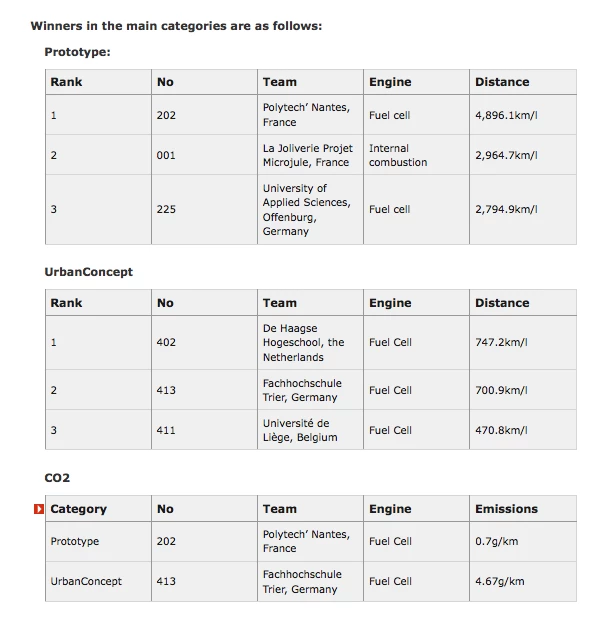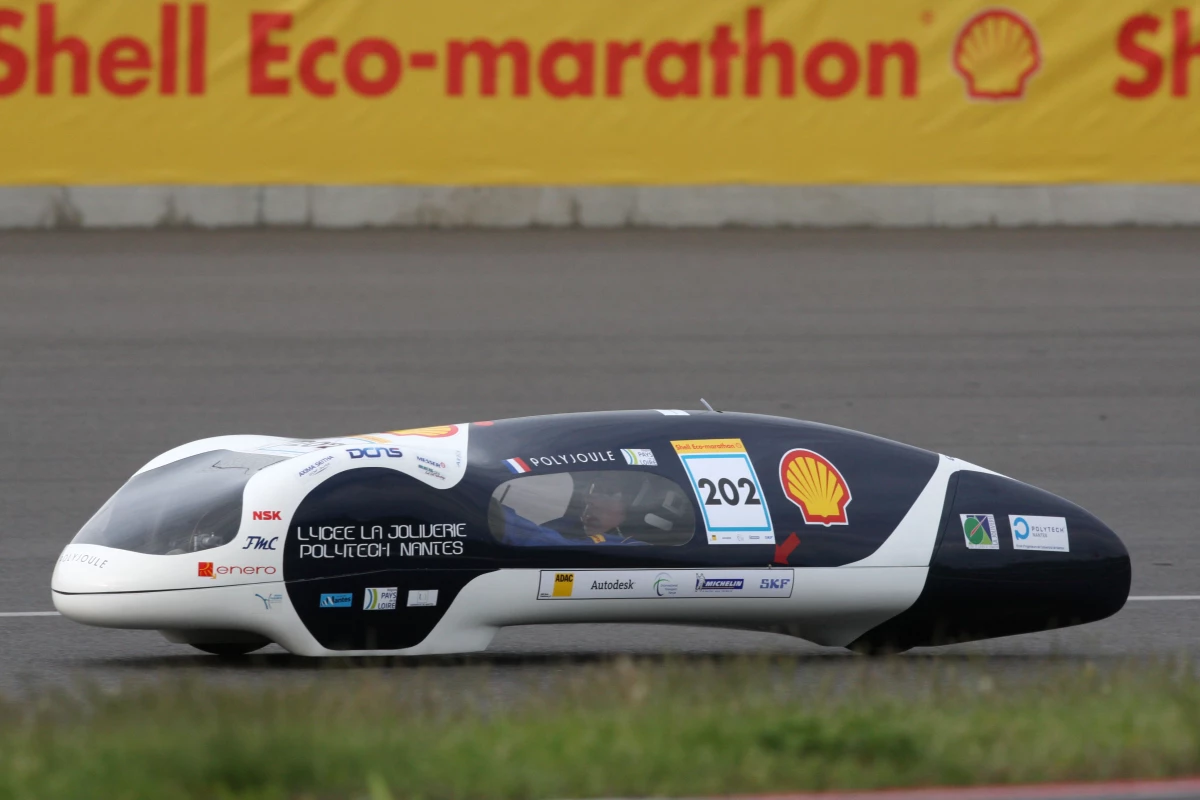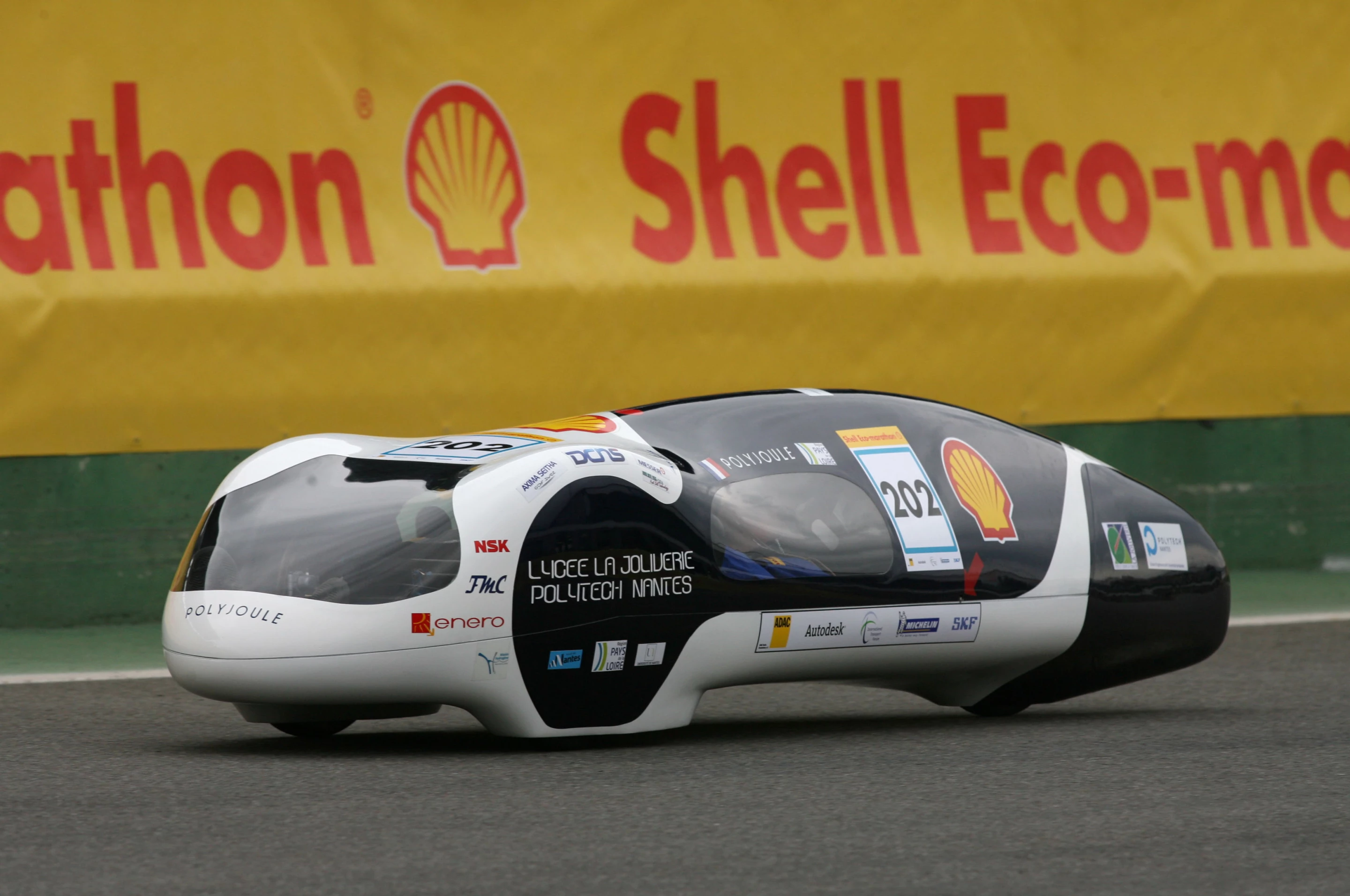A five year Shell Eco Marathon fuel efficiency record has been smashed by a team of French students. Team Polyjoule broke the record on the first day of the event and then went on to break its own record by a further 482 kilometers. But the students still expect even more from their hydrogen fueled vehicle and are already looking toward next year's Marathon.
ETH Zurich of Switzerland achieved the equivalent of 3,836 kilometers on just one liter of fuel in 2005, and set a bar that no-one has been able to top - until now. A joint effort by Polytech Nantes and Lycée La Joliverie smashed the record on the very first day of this year's Eco Marathon, recording 4,414 kilometers on the equivalent of one liter of fuel (10,382 mpg).
Team Polyjoule had a shaky start which threatened to hamper any attempts, after their hydrogen-powered prototype broke down during pre-marathon testing. Once they pooled resources with Lycée La Joliverie, however, they proceeded to stomp all over the Swiss record. The feat is said to have been made possible by enhancing their vehicle’s electronics monitoring system, which minimizes energy loss.

The French students were not quite finished with Shell's Eco Marathon, though, which saw over 200 teams taking part. On the very last day of the annual event, they added another 482km to their own record, traveling the new official world record of 4,896.1 kilometers per liter of fuel - a distance "roughly the equivalent of driving from the head to toe of Europe, from the North Cape in Norway down to the toe of the Italian peninsula."

Polytech Nantes team leader Pauline Tranchard praised the team effort, which saw the students not only set a new world record but also take first place in the fuel cell category, which led them to an overall first place victory. "Five years’ research went into getting us to 4,896 kilometers on one liter of fuel," she said. "Our insight and the wealth of experience that our colleagues from the Lycée de La Joliverie de Nantes brought to the table were both instrumental in helping us reach what many might have considered an unattainable goal."
Tranchard believes that the team can do even better but will have to wait until next year to prove it.









